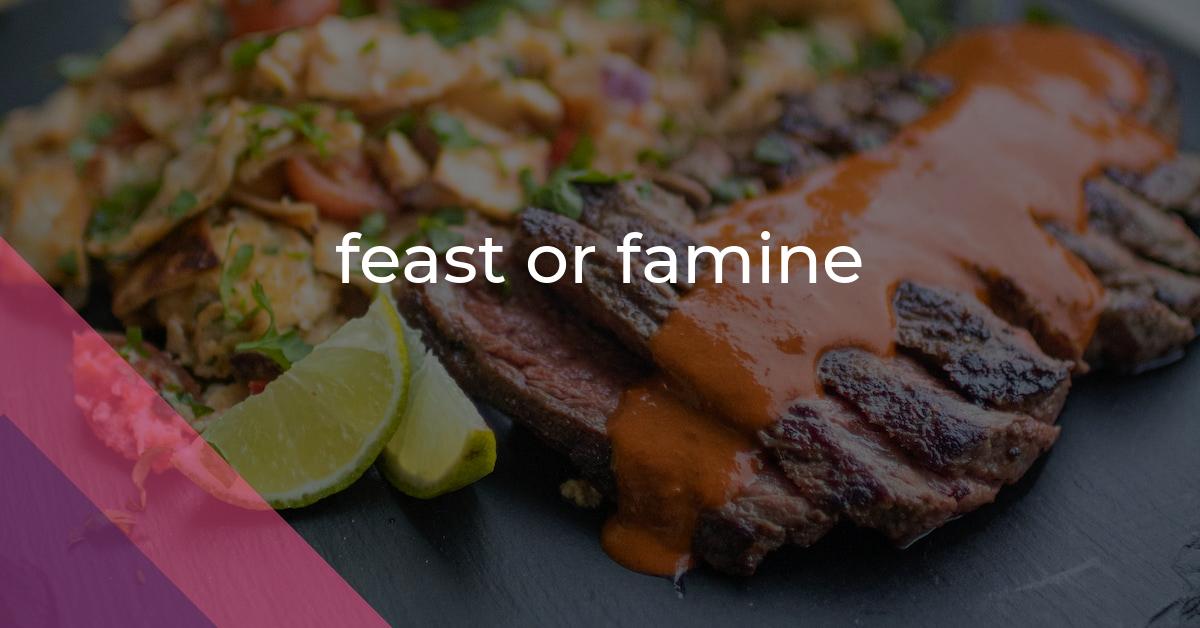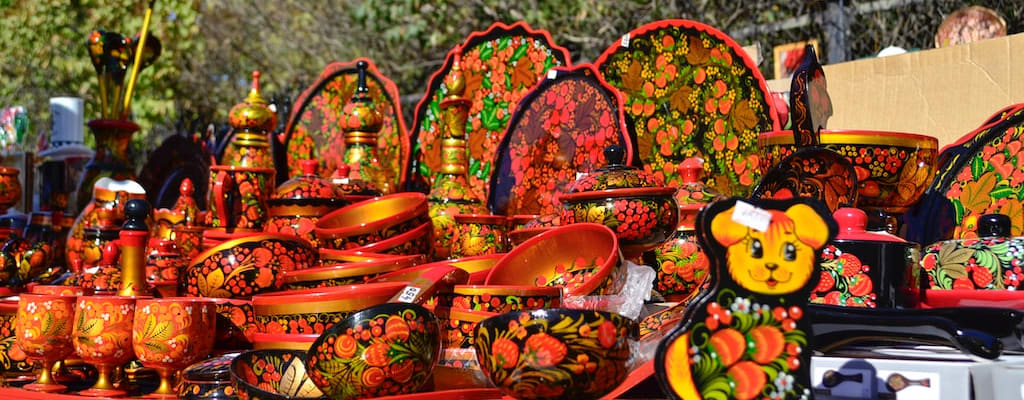feast or famine: Idiom Meaning and Origin
What does ‘feast or famine’ mean?
The idiom "feast or famine" means a situation where there are extreme and unpredictable fluctuations between abundance and scarcity. It implies that there is either too much or too little of something, with no middle ground.

Idiom Explorer
The idiom "lady or tiger" refers to a situation where there are two equally probable outcomes, one favorable and the other unfavorable, resembling two doors. The outcome can be unpredictable or dependent on unknown factors.
The idiom "hunger sauce" refers to an imaginary or metaphorical sauce that intensifies one's desire or hunger for something. It emphasizes a strong craving or appetite for a particular thing or experience.
The idiom "hand-to-mouth" means living in a state of poverty or scarcity, barely being able to meet one's basic needs for survival.
The idiom "hand to mouth" means living in poverty or a state of financial insecurity, where one is barely able to meet their basic needs.
The idiom "get one's fill" means to have enough of something or to satisfy one's desire or appetite for something, usually to the point of feeling full or content.
The idiom "from hunger" is used to describe something or someone of low quality or ability. It suggests a lack of skill or talent and is often used in a sarcastic or critical manner.
"Few and far between" means that something is not happening or not available very often. It refers to a situation where the occurrence or existence of something is rare, uncommon, or scarce.
The idiom "feeding frenzy" refers to a situation where a group of people or animals become overly excited or aggressive, competing voraciously for something, typically in a chaotic or frenzied manner.
It is often used figuratively to describe intense competition or excessive enthusiasm in various contexts, such as media coverage, sales events, or political campaigns.
The idiom *fed up* means feeling extremely annoyed, frustrated, or tired of something or someone. It implies a strong sense of dissatisfaction or exasperation.
The idiom "fat of the land" means to enjoy the best or richest things in life, often referring to an abundance of food or wealth.
Decoding the Duality
Feast or famine is an idiom often used to describe situations that fluctuate between abundance and scarcity. The phrase originated from the agricultural practice of feasting during the harvest season and experiencing scarcity during the winter months. Today, it is frequently used to describe business cycles, personal experiences, and emotional ups and downs.
The idiom feast or famine is derived from the concept of a feast symbolizing abundance. In ancient agricultural societies, the harvest season was celebrated with extravagant meals and festivities, representing wealth and prosperity. However, after the harvest, scarcity followed during the winter months when food reserves were depleted. This practice of feasting and famine gave rise to the idiom.
Today, the phrase feast or famine has expanded beyond its agricultural origins. It is often used to describe business cycles, where companies experience periods of booming success followed by prolonged downturns. In the business world, one can have a feeding frenzy during prosperous times, where there are numerous opportunities to thrive. However, during economic downturns, the same companies may find themselves in a hand-to-mouth situation, struggling to survive.
Individuals also experience feast or famine cycles in their personal lives. Financially, one can go from a state of financial stability to hand-to-mouth, struggling to make ends meet. This is where the idiom beggars can't be choosers comes into play. When resources are scarce, one may not have the luxury of being selective. They have to accept whatever is available to them in order to survive.
Feast or famine can also be applied to creative fields like acting, writing, and athletics. Artists and performers often experience periods of intense success, where they are in high demand and have numerous opportunities. This can be described as a feeding frenzy, where they are busy and sought after. However, these periods of feast are often followed by famine, where opportunities dwindle, and they may struggle to find work.
Feast or famine can also be used metaphorically to describe the ebb and flow of emotions and experiences. In personal relationships, one may have periods of deep connection and fulfillment, but then experience a sense of isolation or loneliness. This emotional fluctuation can be described as a feast or famine in terms of relationships.
The idiom feast or famine originated from the agricultural practices of our ancestors, where periods of abundance during the harvest season were followed by scarcity in the winter months. It has since evolved to encompass a wide range of situations, including business cycles, personal experiences, and emotional ups and downs. Whether describing the fluctuation of opportunities, resources, or emotions, feast or famine remains a powerful and evocative phrase that captures the unpredictable nature of life.
Example usage
Examples of how the idiom "feast or famine" can be used in a sentence:
- After months of financial struggle, the artist's career suddenly took off, and she experienced a feast or famine situation with a constant stream of commissions.
- As a freelance writer, I often find myself in a feast or famine situation, with either too many assignments or no work at all.
- In the unpredictable world of entrepreneurship, it's not uncommon to encounter feast or famine periods where business booms one month and slows down drastically the next.
More "Proverbs" idioms



